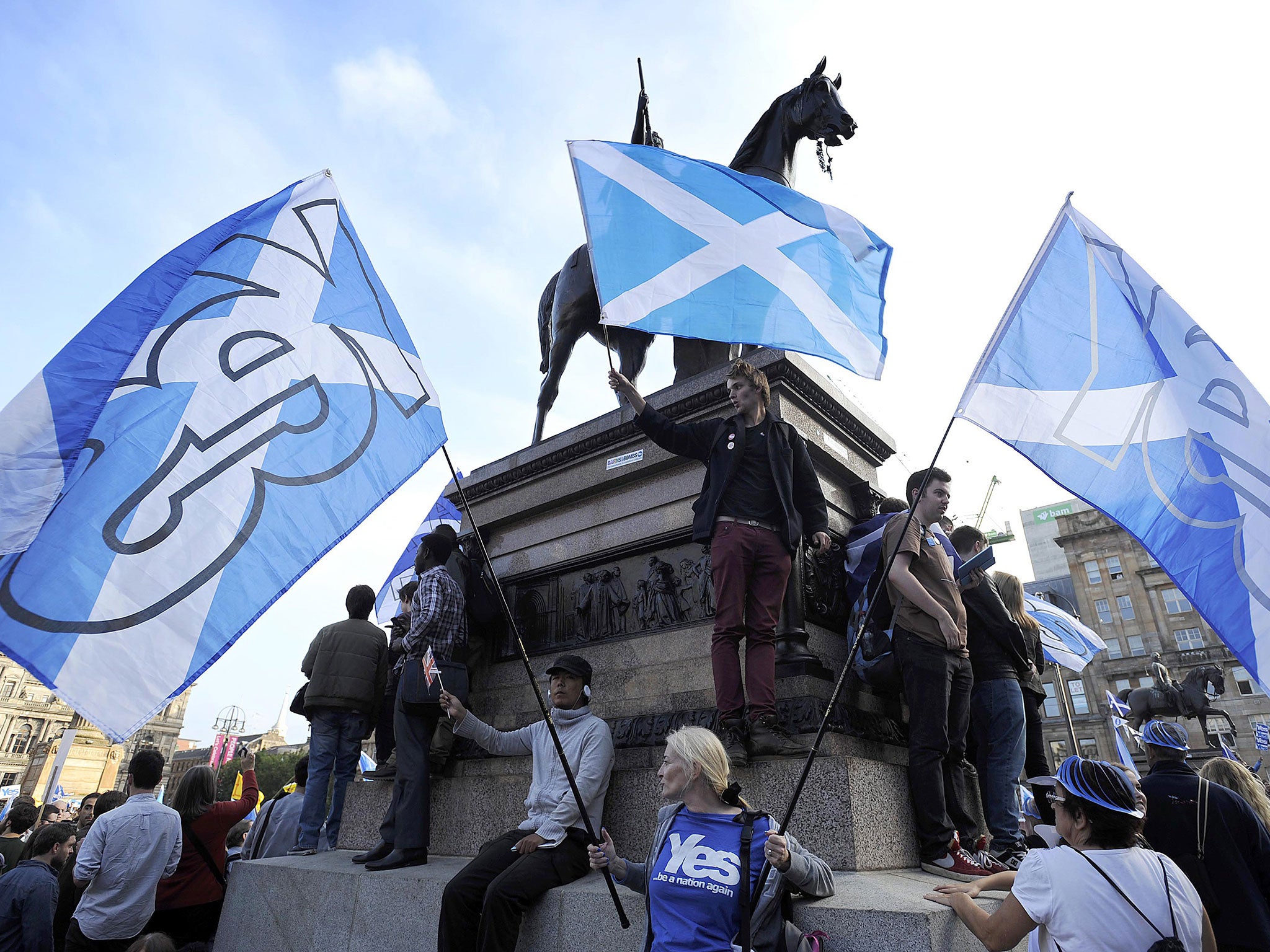Scottish people did not vote for bombing in Syria. This is not our war to fight
Without a new approach to international affairs, a second independence referendum is inevitable

Your support helps us to tell the story
From reproductive rights to climate change to Big Tech, The Independent is on the ground when the story is developing. Whether it's investigating the financials of Elon Musk's pro-Trump PAC or producing our latest documentary, 'The A Word', which shines a light on the American women fighting for reproductive rights, we know how important it is to parse out the facts from the messaging.
At such a critical moment in US history, we need reporters on the ground. Your donation allows us to keep sending journalists to speak to both sides of the story.
The Independent is trusted by Americans across the entire political spectrum. And unlike many other quality news outlets, we choose not to lock Americans out of our reporting and analysis with paywalls. We believe quality journalism should be available to everyone, paid for by those who can afford it.
Your support makes all the difference.Last night I stood in the pouring Glasgow rain among the huddled masses of the 'Stop the War' demonstration. We spoke of the deepening military chaos in Syria, violence across Iraq, and the underreported humanitarian catastrophe in Yemen. Like elsewhere in the UK, we were united in calls for alternative actions to further warfare.
But what are we going to do to achieve that? We marched, symbolically, from one end of the street to the other. It reminded me of the phrase used by former Scottish Government minister Kenny MacAskill who, speaking of his time in CND and the anti-war movement, said: “I am tired of marching. I want a seat for our government in the situations of power.”
I am tired, in the endless cycle of wars, crimes and arms sales, of repeating “not in my name.” I want immediate humanitarian action. And that means having a state and political leaders who are willing to act on that basis.
Rationally, many in Scotland have concluded that this is not possible within the United Kingdom, where a tight consensus continues to bind 381 Labour and Conservative MPs to UK wars and a culture of “punching above our weight”.
On Wednesday 97 per cent of Scottish MPs voted against bombing Syria. The senior members of Scotland’s two largest parties in the Scottish Parliament also oppose bombing. In May the pro-war Conservatives received their lowest vote share in Scotland (14.9 per cent) since 1865 and all MPs who voted for the Iraq War lost their seats.
UK foreign policy, and repeated reports of UK complicity in war crimes, has become a cause of rebellion of Scottish internationalists against Westminster. British wars no longer have a Scottish mandate from the people or the nation’s elected representatives. The significance of this will, I hope, act to temper the hawkish character of the UK political system - but I have my doubts.
In the Syria debate the vast majority of Scottish and anti-war MPs supported prioritising the Vienna peace talks, acting to cut off oil and arms supplies to Isis, and increasing support for Kurdish fighters. Yet that case was drowned out in Parliament and the broadcast media. Powerful voices spoke of “our allies”, as if they still speak for one nation. Among those allies are Turkey and Saudi Arabia, both complicit in the suffering of the Kurdish and Syrian people.
The armchair warriors ignored the military evidence, weak intelligence, inevitable civilian casualties and the dangers of increased terrorism. Yet still, as Hilary Benn’s oratory papered over the cracks, MPs roared while the bombers in Moray and Cyprus revved their engines.
The bombings - 15 months old and nearly 30,000 missiles in - will continue to be a disaster. Those who take to the streets will condemn its inevitable folly. But that is not enough.
Stating that this action is ‘Not in Scotland’s name’ is a warning to the Westminster political establishment that without a new approach to international affairs, a second independence referendum will end their military adventurism with a thud. New confederal states without Britain’s imperial baggage or nuclear weapons will emerge.
This is not a distraction. Given the scale of suffering across the Middle East and North Africa, and the UK’s complicity in the arming of 28 abusive states last year alone, it is our foremost moral duty to support practical constitutional change that will benefit the global peace movement.
When the Scottish Government announces work with Syrian women in United Nations peace building and takes a higher share of refugees, we are already creating that alternative. We must do so much more so that Scotland, rather than merely dissent, can build peace in its name.
Michael Gray is a journalist with CommonSpace.scot and a columnist for The National. Follow him on Twitter: @GrayInGlasgow
Join our commenting forum
Join thought-provoking conversations, follow other Independent readers and see their replies
Comments